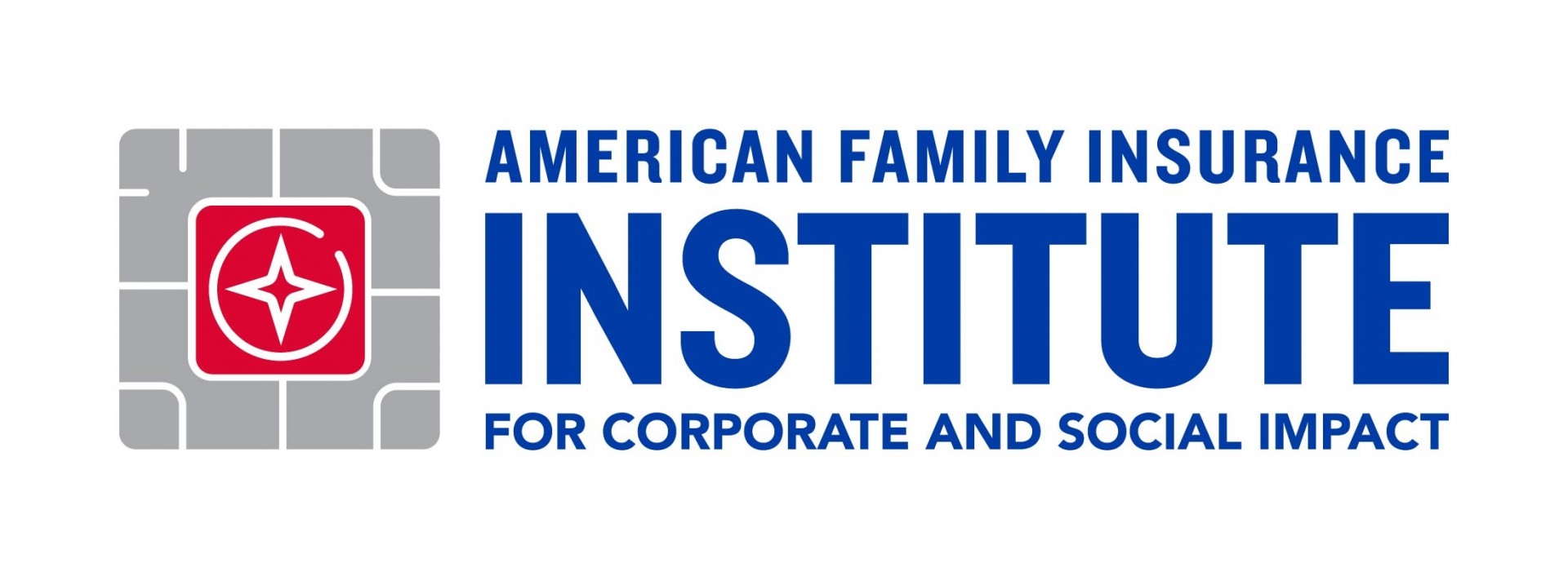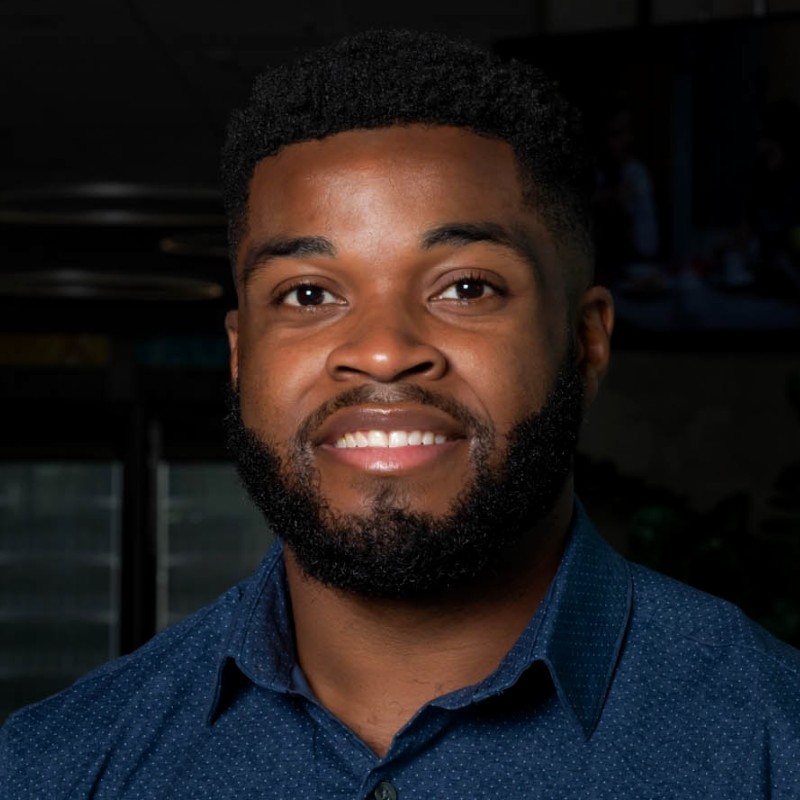
This article appears as part of This Week in Milwaukee Rising, a weekly newsletter from Technical.ly highlighting the innovators bringing a more just, equitable and dynamic Milwaukee economy. Subscribe here. The series is underwritten by American Family Insurance Institute for Corporate and Social Impact.
From Mfoniso Ekong’s view, social entrepreneurs are more diverse than your average startup founder, and face more barriers to securing capital. That can make it more difficult to get their businesses off the ground.
“They have more roles outside of the business, and they’re not getting money from the family,” he told Technical.ly. “They have to juggle their whole life for this,” a mission they believe can make change in the world.
As the director of social impact at gBETA, an offshoot of national accelerator gener8tor, Ekong is helping them fulfill that mission. His work goes beyond generating resource awareness for impact-minded founders and includes extending opportunity to entrepreneurs who are often overlooked — that is, not just those who “look like Elon Musk or Mark Zuckerberg.”
gBETA Social Impact is a free, seven-week accelerator that helps for-profit startup founders tackling important social issues in two tracks: equity in education, and criminal justice reform. While Ekong is focused on the latter, the program as a whole offers its cohorts one-on-one coaching and mentoring, guidance on building out business models, and strategy and growth support, as well as access to a community of companies, investors, technologists and capital.
“gener8tor is an accelerator, but it does so much more,” said Ekong, who works from the organization’s Milwaukee office. “It’s really best described as a virtual community center. It has these different layers, not just finding founders, growing skills or ideas, but really growing the culture and the community. [With gBeta,] impact is built into it from the jump.”
‘Caught the community bug’
A native of Illinois, Ekong earned his bachelor’s in health science from Benedictine University. Following college, he joined AmeriCorps, which landed him in Milwaukee, where he worked with local corporations and schools to bring STEM learning opportunities to K-12 students. When his service year wrapped, he returned to his roots in healthcare. But after spending time in the field, including as a clinical researcher, he realized he wanted to do more.
“I really caught the community bug,” Ekong said. “I saw the [gBeta] opportunity and didn’t really know where I would fit in. At first, I thought I was selling my soul working in such a capitalistic environment, but working with so many companies and founders and accidental founders to expose them to venture capital,” he began to see potential in the position.
Adding to his interest was the rise of social impact initiatives across both the corporate and startup worlds, something he says is being driven by increasing consumer demands. With more buying power and more young people interested in addressing social justice issues, Ekong believes social innovation will continue its ripening.
Yet for startup founders looking to put mission above profit, especially those from underserved groups, resource awareness is lacking, leaving many would-be founders of color and others behind, he said.
“There’s so much attention paid to the top, but there are still so many people living without resources,” he said. Reminding of the refrain that the people closest to the problem are also those closest to a solution: “It’s just about finding a problem and finding a solution for it. We hope tech can help solve that, but [many areas] remain overlooked. We’re just trying to meet the needs of the community.”
Resources for equitable growth
That’s also one of the reasons why gener8tor moved away from its geographically based accelerator model to instead include virtual programming, and startup founders from across backgrounds and regions, Ekong said.
“When gener8tor started it was predominantly about ‘place,’” said Ekong, focusing on startups in Milwaukee or Madison. “Now, it’s evolved to other areas that are overlooked, like Black and brown founders, women founders. If it’s VC [they’re seeking], we want to put them in the best position for that or connect them to the right resources. It’s been great to offer that opportunity to entrepreneurs because there just aren’t a lot of programs out there for them.”
Though social impact startups increasingly draw media attention, Ekong said they still have a long way to go to attract the sort of capital funneled to traditional early-stage ventures. The problem is twofold: Social impact founders continue to struggle to measure impact, and investors are historically, and exclusively, focused on high returns as a measure of success.
“The double-triple bottom line approach is nice in theory, but investors are still traditionalists,” he said. “More education is needed for startups and for investors.”
[Editor’s note: Check out Technical.ly’s Off the Sidelines investor education podcast for more on this topic.]
Still, there is progress being made around social innovation, including around his focus in justice-tech, he said.
Ekong points to Milwaukee’s The Way Out, an anti-bias platform for second-chance employment, as a prime example. The startup’s founders, Eli Rivera and Ruben Gaona, are both formerly justice-involved individuals themselves — a rarity in the startup world.
“I think I’m most proud of the founders who stick with the process and are rewarded for that, especially the ones that have to make so many pivots or have had to deal with certain barriers, whether it’s systemic, their employment status, or their family situation,” Ekong said. “For me, I am just helping move that progress.”
Subscribe to This Week in Milwaukee Rising:
Join the conversation!
Find news, events, jobs and people who share your interests on Technical.ly's open community Slack

Philly daily roundup: Student-made college cost app; Central High is robotics world champ; Internet subsidy expiration looms

Delaware daily roundup: Early-stage loan help; Jobless rate drops below 4%; $700k grant for industrial park

Philly daily roundup: Earth Day glossary; Gen AI's energy cost; Biotech incubator in Horsham


